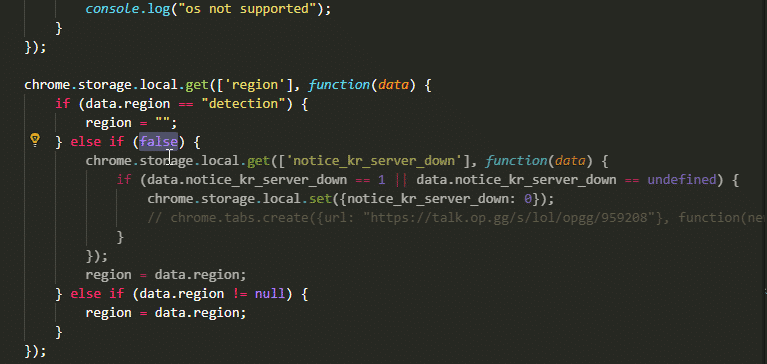I went on a very fruitful journey of learning about the League of Legends client or LCU API to try and find how I might go about making an automatic team searching tool for champion select. OP.GG already has an extension that does this but due to some seriously strange reasons it appears that the Korean server has different rules about how you are allowed to interface with the client. Because I am in fact in Korea and would like to use this I decided to make a work around. Anyway. I've solve both issues and I thought I could be of use to some future explorers of the League client that may be interested in communicating with it.
Rift Explorer
https://github.com/Pupix/rift-explorer
This is a great tool that helped me a lot in this exercise. The public documentation for the client interfacing API seems to be a little bit shrouded. It appears that they have
publicly acknowledged that this API https://developer.riotgames.com/league-client-apis.html you can read more about this history of interfacing with the client here https://riot-api-libraries.readthedocs.io/en/latest/lcu.html
GET and POST Requests
Rift Explorer will give you lots of options for things to look at with a few GET and POST requests. When I was testing I created a custom game lobby and read the state of the chat room and champion select. After messing around with the application I wanted to see if I was able to get the same JSON data that Rift Explorer was able to get using Chrome to create the request.
The League of Legends client hosts a local web server which is able to be found by using the data found inside of the lock file located in C:\Riot Games\League of Legends\lockfile (or where ever you might be running the executable from). This file is created when you are running the game and includes the port number which the server was created on and the password to interface with the server. This was a little confusing to find at first but using this issue https://github.com/Pupix/rift-explorer/issues/4#issuecomment-348681824 by navigating to localhost:(lockfile port) and using the username "riot" and the generated password in the lockfile you can now make requests with Chrome or any HTTP agent you like.
OP.GG extension modifications
All of your extensions for Chrome are located in C:\Users[login_name]\AppData\Local\Google\Chrome\User Data\Default\Extensions
from here you can read any Javascript or check out all the files that an extension comes with. Thankfully the OP.GG extension isn't obfuscated so digging through the code is incredibly easy. There a check to see if you're on the Korean Server for your region. In this case the lobby information will not be displayed.

Although you are technically able to modify the files that are located here in AppData, Chrome checks out the integrity of these files to see if they have been modified. Because of this we need to uninstall the official extension in favor of our own offline version. Since the extension is fully locally stored you can simply make a copy of the folder and place it somewhere nice like your documents and modify anything. For example I'd like to modify the part where I'm not able to use the extension here in Korea. By simply bypassing this check the application now works perfectly.
Project Ideas
When checking out some of the options inside of the client API there are a lot of ideas for projects popping into mind. One of those would be a rewritten version of the OP.GG extension as a desktop app in C# or something. Another idea is an automatic ready check accepter. There was always talk about some kind of app or high ELO players to have on their phone so that if they walked away from their PC for a second while the queue popped they'd be able to accept the game remotely. There is a post function for accepting the match in the API so something like this would be really easy to make actually.
